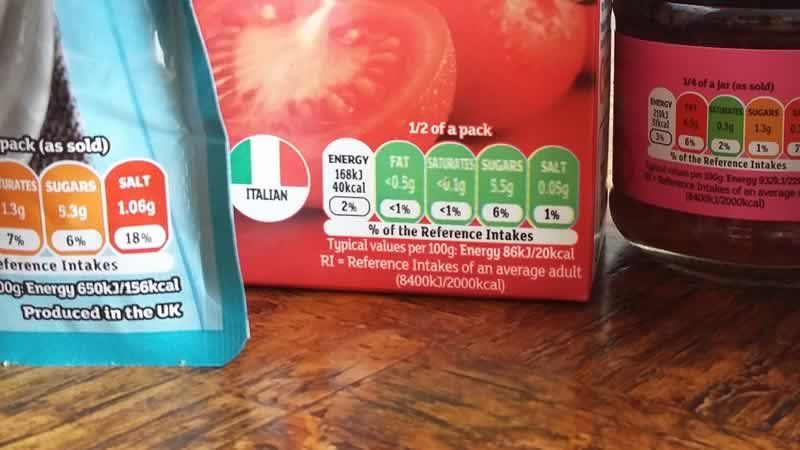
Moderate salt restriction is beneficial In ADPKD
Restricting salt in your diet can help slow the progression of ADPKD, according to a recent study. This is a lay summary of an article published in Kidney International, February 2017.
What we know already
It has long been recognised that people with ADPKD have raised blood pressure. Kidneys are central to regulating blood pressure (BP) and they do this through the Renin-Angiotensin-Aldosterone-System (RAAS) which involves a delicate balance of blood volume, renal blood flow, aldosterone and sodium (Na).
In the general population it is accepted that moderate sodium restriction has a beneficial effect on BP and cardiovascular events. Most sodium is eaten as salt (NaCl or sodium chloride). But defining the optimum salt/sodium intake for people with chronic kidney disease has been controversial, with some studies producing unexpected results.
Reducing sodium intake has been shown to slow the progression of renal diseases where protein excretion in the urine (proteinuria) is common. However, proteinuria is not a major feature of ADPKD, so would sodium restriction have the same effects?
The gold standard for assessing dietary sodium intake is to measure the sodium output, that is the urinary excretion of sodium (UNaE). This is more accurate than asking people to keep food diaries or extrapolating from single measurements of urine sodium content. The UNaE test entails a 24 hour urine collection.
The CRISP study in 2011 found that UNaE was associated with the rate of total kidney volume (TKV) increase. CRISP stands for the Consortium for Radiologic Imaging Studies of Polycystic Kidney Disease - not the salty snack. This suggests that dietary intake of sodium may be related to the growth of the kidneys.
It has previously been shown that increase in total kidney volume (TKV) can be used as a measure of progress of the disease, even in early stages. In later stages, disease progress is measured by the fall in the glomerular filtration rate (eGFR).
Dr Vincente Torres and colleagues carried out a sub-analysis of the HALT-PKD trial data. HALT-PKD was a large trial which set out to examine the effects of BP control in ADPKD. Because it involved several hundred people with ADPKD it provides a valuable data resource for further analyses. The researchers used the data from HALT-PKD to investigate whether sodium restriction slows the progress of ADPKD.
What this sub-analysis study adds to our knowledge
The conclusion of the study is that moderate salt restriction in the diet could slow the progression of the disease.
It is worth a closer examination of the validity of this claim, bearing in mind that HALT-PKD was not specifically designed to examine sodium intake and disease progression.
HALT-PKD had two “arms” or groups of patients in the trial, one in early stages with good kidney function (A), the other patients in later stages of ADPKD and moderately reduced kidney function (B). These two groups were sub-analysed separately. Both demonstrated a relationship between urinary sodium output (UNaE) and progression of the disease. In A, the early stages, the rate of increase in total kidney volume was associated with the averaged UNaE. In B with less kidney function, the greater the urinary sodium excretion the larger the fall in kidney function, as measured by the estimated glomerular filtration rate (eGFR).
All of the patients involved in HALT-PKD were given advice on reducing their dietary salt intake. Although long-term compliance with a low salt diet can be quite hard to achieve, the measurements of the urinary excretion of sodium did fall during the study showing that on the whole patients in the study did manage to keep to a sodium-restricted diet.
It is important to note that the effect of sodium restriction was noticed regardless of which BP treatment the patients were on.
This study has clearly suggested a causal relationship between dietary sodium and increase in kidney size, irrespective of age, gender, race, BMI or BP treatment.
r Torres et al have added a single note of caution: that overzealous sodium restriction for patients on a ACE inhibitors for blood pressure medication could theoretically lead to some damage to the interstitial tissue (the tissue between the tubules) of the kidney. This has been shown is studies on rat models, but this is probably an unlikely situation given the modern diet. On average, the general population consumes a third more salt daily (8g for adults) than is recommended (6g).
What does this mean for ADPKD patients?
A low salt diet in this instance was set as no more than 2.4g salt per day. If higher sodium intake is associated with faster decline in kidney function then it is clearly going to help if we take steps to reduce our salt intake.
This is no easy task and we need both knowledge of the salt content of foods and frequent reinforcement of the low salt message in order to comply with this advice.
There is always a rider to any study, that individuals should only make dietary adjustments in consultation with their own medical advisors. But it is very likely that most of us would benefit from a low salt diet.
Author: Thanks to Katie Law, BM, PGCE (Med Ed) for reviewing this study and summarising the results above.
Reference: You can read the study abstract in Kidney International. Unfortunately, we cannot publish the complete article for copyright reasons.
Tips for reducing dietary salt
Do not add salt to your food at the table. Use herbs, spices, lemon or vinegar instead.
Make your own stock instead of buying salty stock cubes – and save money too! For a meat stock: add roughly chopped vegetables such as carrots, onions and celery to any meat bones in a pan with plenty of water. Add a bay leaf, dried herbs and peppercorns. Bring to boil and simmer for 2 hours. Strain and cool. For a vegetable stock: omit the bones and add more vegetables such as leeks or turnips. Simmer for 30-40 minutes.
Read the food labels. Look for the red, amber, green symbols, and the table showing salt content.
Find out more in the new Diet and Lifestyle leaflet or the Diet and Lifestyle page.
- Hits: 56696

